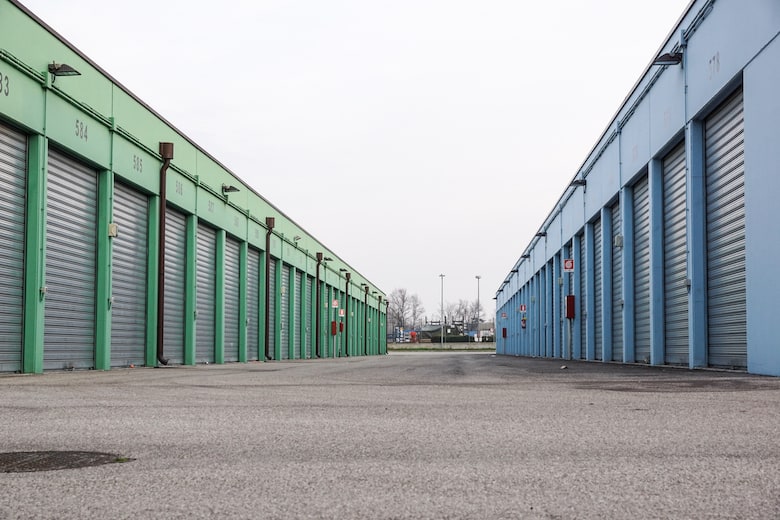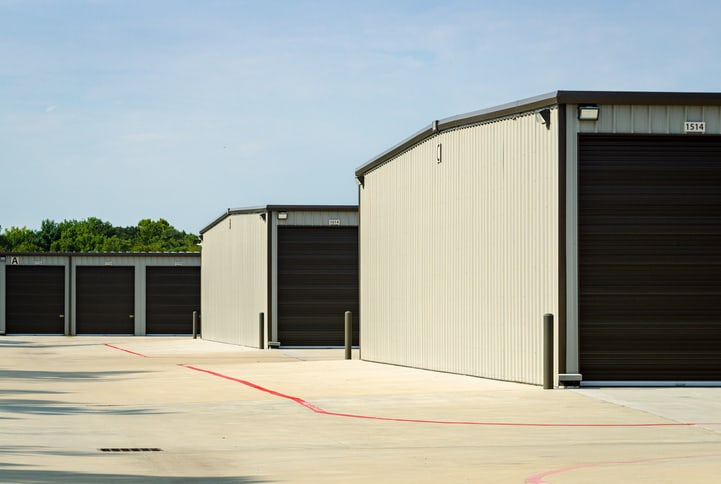How to Buy a Self-Storage Facility

Buying a self-storage facility isn’t like buying any other type of commercial real estate. And it’s certainly not like buying a home.
However, buying a storage facility can be lucrative. In recent years, self-storage has gained ground as an asset class thanks to its solid investment returns and its recession resilience. The sector’s stellar performance during the COVID-19 pandemic has further burnished the reputation of self-storage investment.
Follow these then expert tips for how to buy a storage facility.
1. Consider why you want to buy a self-storage facility.
Bill Bellomy, co-founder and principal of self-storage brokerage firm Bellomy & Co., recommends pondering why you want to purchase a storage facility as opposed to another type of real estate asset.
“Let’s make sure you’re getting into this for the right reasons,” Bellomy said. “One of the challenges but also one of the opportunities is you’re buying a business with a real estate component to it.”
Steven Weinstock, national director of self-storage at commercial real estate services company Marcus & Millichap, referred to a self-storage facility as a business within a business — the business that rents storage units, and the business that owns the real estate.
“That, in a big respect, is what makes it so gosh darn attractive to own a storage facility, because you’re not just buying a piece of dirt, you’re buying a piece of dirt that also gives you the opportunity to run a business,” Weinstock said.
“It’s a great investment opportunity for a lot of people, especially people who want to enter the real estate world but also need a business to go along with it,” he added.
2. Do your homework.
Bellomy recommends talking to an array of folks in the self-storage industry to take the pulse of the market. Those people may include self-storage brokers, property appraisers, real estate lenders and even self-storage owners.
You also should perform or commission a cash flow analysis that examines the net operating income. NOI equals all of the expenses of the storage facility versus how much revenue the facility generates.
3. Broaden your search.
Bellomy said some potential buyers initially focus on buying a facility within, say, 45 minutes of their home. But finding a facility to buy that is that close to your residence could take years. Therefore, Bellomy recommends widening your search radius to boost the number of buying opportunities.
Keep in mind that the largest self-storage operators dominate major metro areas, so you may want to scope out smaller markets where storage demand is high but storage supply is relatively low. This can be achieved with a simple map search on SpareFoot.com.
Once you pinpoint a desirable market, narrow your focus to the various trade areas within that market. Ninety percent of a facility’s customers come from within a one- to five-mile radius, according to Commercial Property Advisors.
4. Assess the market’s long-term potential.
Once you think you’ve found the perfect market to purchase an existing self-storage facility, you’ll need to conduct additional search to make sure the area offers long-term viability for self-storage units. Market research is key to finding that diamond-in-the-rough property that will become a strong revenue producer in the future. Before you join a new market, you’ll need to assess the long-term growth and stability of the area to ensure it can sustain high demand and occupancy for your self storage property. Research valuation and acquisition trends and learn from other operators’ wins and losses in your market to create a competitive advantage for your business.
Check out the local competition. Competing with high-budget REITs can be tough, and in a highly-saturated market, you’ll need to find a competitive edge in order to succeed – slapping “AAA” on the front of your storage facility’s name isn’t enough to stand out anymore.
Find out where new apartments and residential areas are being built, and study your self storage property’s location compared to new developments. If you’re planning on building more climate control or updating the facility’s outdoor parking areas, ensure you’ll be able to get zoning for more building and new construction on-site. Find the current rent rates and pricing in your area and prepare your business model to stand up to any new competition.
Ultimately, you want to find a property that will generate enough revenue to cover operating expenses, debt service, and enough profit to make your self-storage business worthwhile.
5. Put your best foot forward.
When you’re trying to buy a storage facility, present yourself as being a credible businessperson. Bellomy suggests providing a rundown of past real estate deals you’ve executed, a list of real estate brokers who can be contacted as references and proof of how you’ll fund the deal.
Be prepared to make a down payment of at least 25%, Bellomy said. However, a loan from the Small Business Administration (SBA) may require a down payment of only around 10% to 15%.
“Whatever you can do to differentiate yourself from other buyers, do it,” Bellomy said. “It’s so competitive. I’ve got five offers — why should I select yours over these four other offers?”
6. Lean on the self-storage business pros.
Don’t try to go it alone when you’re in the market to buy a self-storage facility (unless you’re a real estate professional). Typically, you’ll want to vet several brokers who specialize in self-storage and are familiar with the markets where you’re looking to buy, and then hire the one who best meets your needs. Self storage brokers are investment advisors with self storage expertise, market knowledge, property development plans, and marketing expertise. They’ll help match you with a self-storage property that meets your goals and facilitate a smooth transaction.
7. Secure financing.
Before proceeding further, you’ll need to make sure you can secure financing. A good self-storage broker can point you in the right direction when it comes to choosing a self-storage lender. If you can pool your resources with other self-storage investors, you can leverage more capital for purchasing a facility.
8. Select a property.
Once you’ve zeroed in on the property, you have lots of due diligence ahead of you.
Analyzing financial statements, cash flow, and tax returns is a major part of your self storage valuation process. Just like any other real estate investment, it’s important to do your due diligence before purchasing a self storage business to investigate whether a property is worth the money and risk involved. Your due diligence process will likely consist of financial audits, self-storage market analyses, growth trajectories, and a competitive analysis.
As a buyer, you need to be proactive in gathering all the information you can about the business, starting with the last three to five years’ worth of business statements. From cap rate analyses to tax returns, market analysis reports, rent rolls to historical rental rates, you’ll be poring over a lot of business data.
To get detailed business information and historical records on the property, your seller will need some kind of reassurance that you’re a serious buyer. Discuss your interest with the business owner (usually stated through a signed letter of intent) and provide a signed confidentiality agreement that specifies you will not share the seller’s private business information with outside sources or competitors. Use the information you gather through due diligence to determine the financial feasibility of the property, forecast future cash flow and annual revenue of the business, and evaluate the economic viability of further development.
9. Inspect the property.
Every storage market has difficult weather – if you’re in Minnesota, you’ll be nervously checking facility plumbing and heating to ensure it can stand up to a cold winter. If you’re in Florida, you’ll be mentally checking things off your hurricane preparedness plan. If you’re an Arizonan, you’ll be worried about keeping your climate controlled units’ AC running through a sizzling hot summer. There is no perfect location for self storage, and every facility location will have its own set of difficulties.
No matter what you’re planning to do with the acquired property, ensure you inspect every square foot carefully with the help of a trusted contractor to limit unexpected repairs and hurdles to construction in the future.
When doing a property inspection, you’ll want to carefully walk the storage building inside and out with a trusted building inspector and keep an organized list of anything that is in need of repair. Keep a close eye on anything that doesn’t meet current building codes and will need to be fixed or upgraded before you can even open for business. Whether you’re flipping the property or not, you’ll need to watch out for roof leaks, broken HVAC systems, fire code non-compliance, wood rot, and interior water damage. Find out if there is a warranty remaining on the roof, unit doors, elevators, or gates.
10. Make an offer they can’t refuse.
Armed with heaps of due diligence and a detailed inspection report, you should be ready to direct your self-storage broker to make an offer on your desired property. If you can secure an off-market deal to buy a mini storage facility, consider yourself lucky. Competition for existing self-storage facilities can be fierce, with multiple bidders making offers. Work with your storage broker to put together a compelling offer that makes yours standout from other self-storage investors that are looking to buy.
Buying your first facility is the first step towards making your self-storage dreams come true. Explore our resources to learn everything else there is to know about being a successful self-storage operator.
Related Resources:

How to Start a Self-Storage Business
Launching a self-storage business for the first time? Start here and learn everything you need to know before you buy or build. Keep Reading

Defending Your Storage Operation Against Market Forces
Discover four crucial imperatives all operators need to know to properly defend their operation from market forces, seen and unseen. Keep Reading

Contactless Operations
It's more important than ever that you’re taking the necessary precautions to successfully operate your business while limiting customer interaction to keep everyone safe. Keep Reading